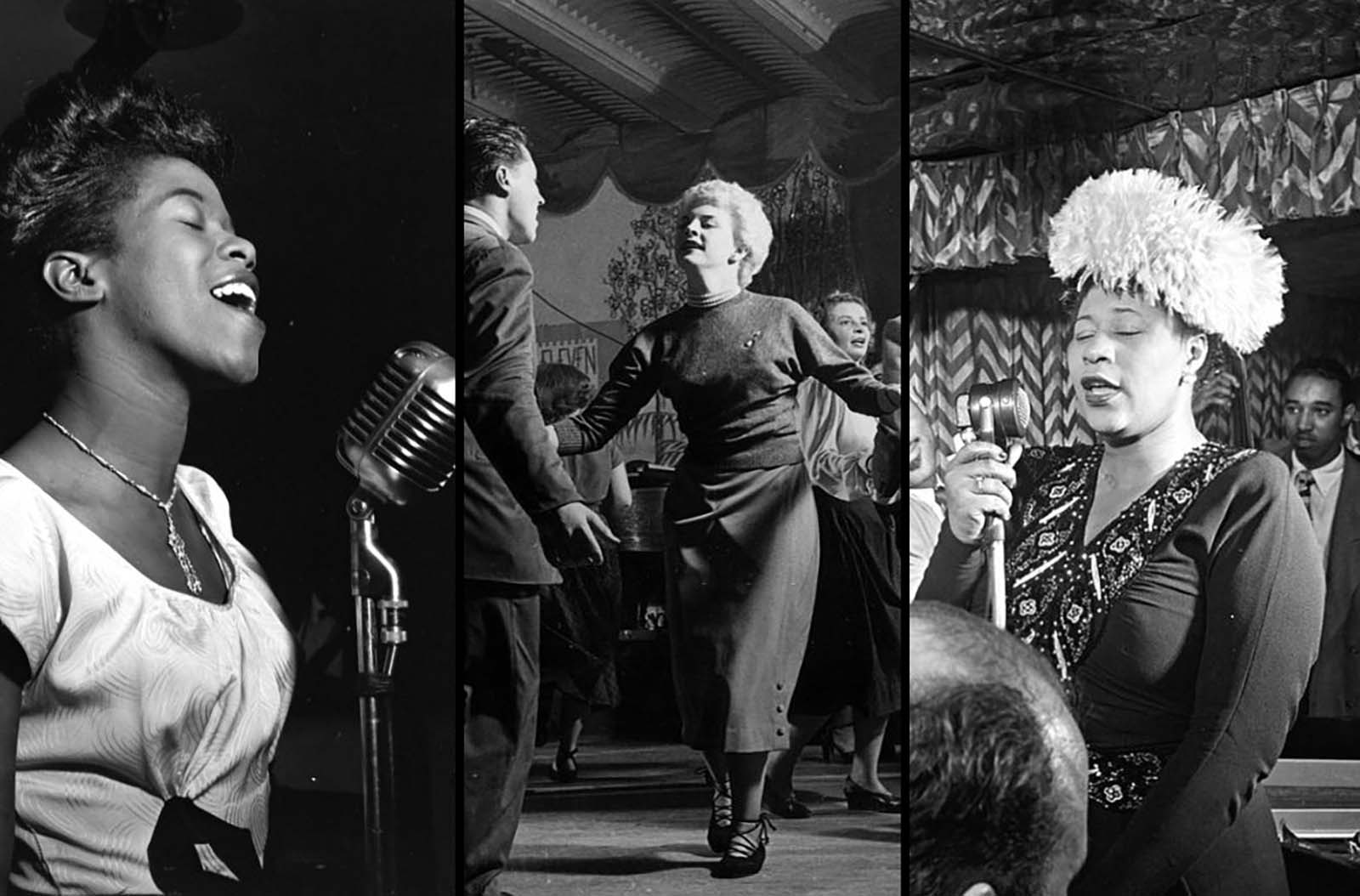
The Jazz Age, also known as the Roaring Twenties, was an electrifying era that epitomized a heady mix of cultural rebellion, artistic expression, and newfound freedom.
At the heart of this period was jazz music, an innovative genre that not only transformed the music scene but also had a profound impact on fashion, lifestyle, and the social scene.
Vintage photographs from this bygone era offer a captivating glimpse into the enthralling world of jazz clubs, showcasing not only the incredible musical talent but also the unique style and ambiance of the time.
Jazz music, with its roots in African American communities in New Orleans, emerged as a fusion of ragtime, blues, and marching band music.
It quickly captured the hearts of people across the United States and beyond. The infectious rhythms and soulful improvisations of jazz musicians enchanted audiences, creating an atmosphere of excitement and vivacity.
Legendary artists like Louis Armstrong, Duke Ellington, Bessie Smith, and Jelly Roll Morton became iconic figures, leaving an indelible mark on the world of music
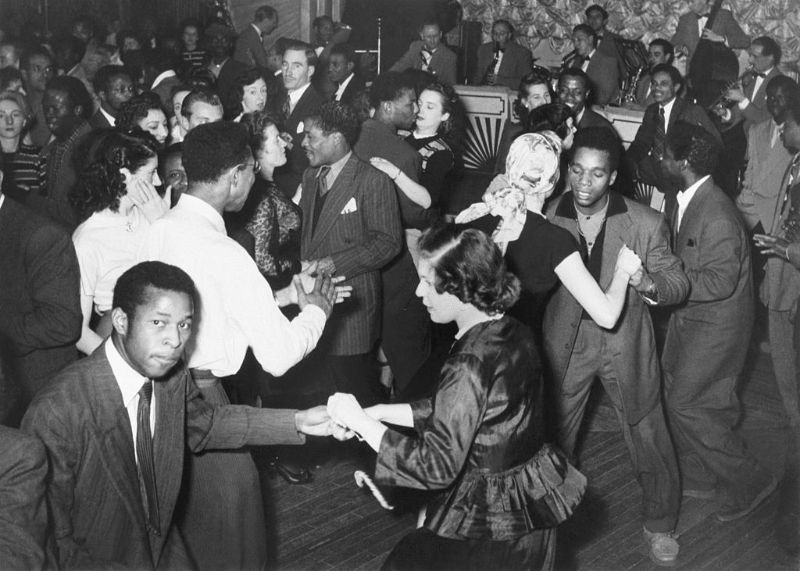
Paramount nightclub, London, 1949.
As jazz spread around the world, it drew on national, regional, and local musical cultures, which gave rise to different styles.
New Orleans jazz began in the early 1910s, combining earlier brass band marches, French quadrilles, biguine, ragtime and blues with collective polyphonic improvisation. But jazz did not begin as a single musical tradition in New Orleans or elsewhere.
In the 1930s, arranged dance-oriented swing big bands, Kansas City jazz (a hard-swinging, bluesy, improvisational style), and gypsy jazz (a style that emphasized musette waltzes) were the prominent styles.
Bebop emerged in the 1940s, shifting jazz from danceable popular music toward a more challenging “musician’s music” which was played at faster tempos and used more chord-based improvisation.
Cool jazz developed near the end of the 1940s, introducing calmer, smoother sounds and long, linear melodic lines.

Jazz Club in Windmill Street, London, 1949. (Photo by Charles Hewitt)
The origin of the word jazz has resulted in considerable research, and its history is well documented. It is believed to be related to jasm, a slang term dating back to 1860 meaning “pep, energy”.
The earliest written record of the word is in a 1912 article in the Los Angeles Times in which a minor league baseball pitcher described a pitch which he called a “jazz ball” “because it wobbles and you simply can’t do anything with it”.
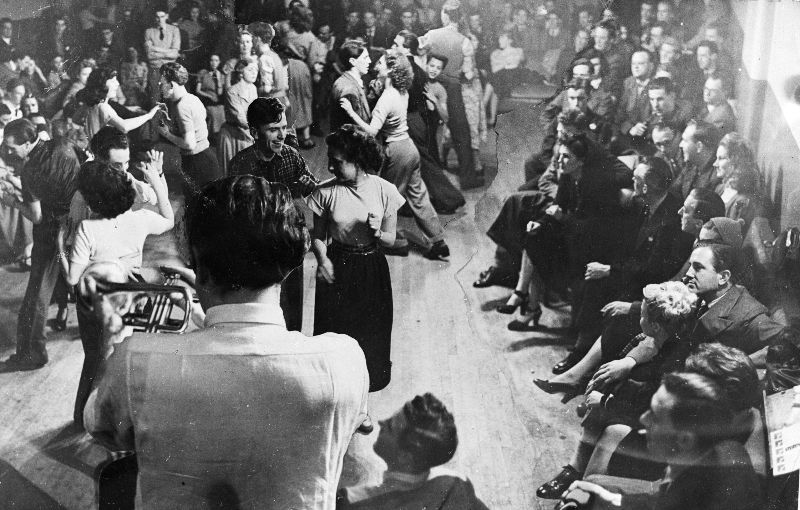
Jazz Club in London, 1949. (Photo by Charles Hewitt)
The use of the word in a musical context was documented as early as 1915 in the Chicago Daily Tribune.
Its first documented use in a musical context in New Orleans was in a November 14, 1916, Times-Picayune article about “jas bands”.
In an interview with National Public Radio, musician Eubie Blake offered his recollections of the slang connotations of the term, saying: “When Broadway picked it up, they called it ‘J-A-Z-Z’. It wasn’t called that. It was spelled ‘J-A-S-S’. That was dirty, and if you knew what it was, you wouldn’t say it in front of ladies.”
The American Dialect Society named it the Word of the 20th Century.
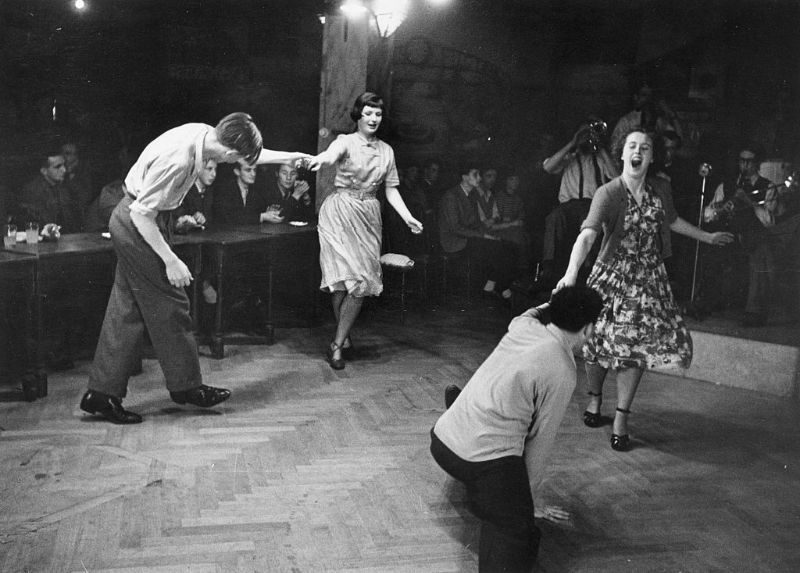
London Jazz Club on Oxford Street, London, 1949. (Photo by Charles Hewitt)
Jazz clubs became the breeding ground for creativity, fostering a sense of community and camaraderie among musicians and enthusiasts alike.
These venues provided an escape from the mundane realities of life, allowing people to revel in the pulsating rhythms and vibrant ambiance that defined the jazz scene.
One cannot discuss the Jazz Age without delving into the enchanting world of fashion that accompanied it.
The era witnessed a dramatic shift in clothing styles, as traditional restrictive garments gave way to more relaxed, daring, and glamorous attire.
Flapper dresses, with their drop-waists and fringe detailing, became the epitome of chic rebellion for women, symbolizing a departure from conservative norms.
Men’s fashion embraced the suave charm of tuxedos, tailored suits, and the extravagance of zoot suits, reflecting their desire to break free from convention.
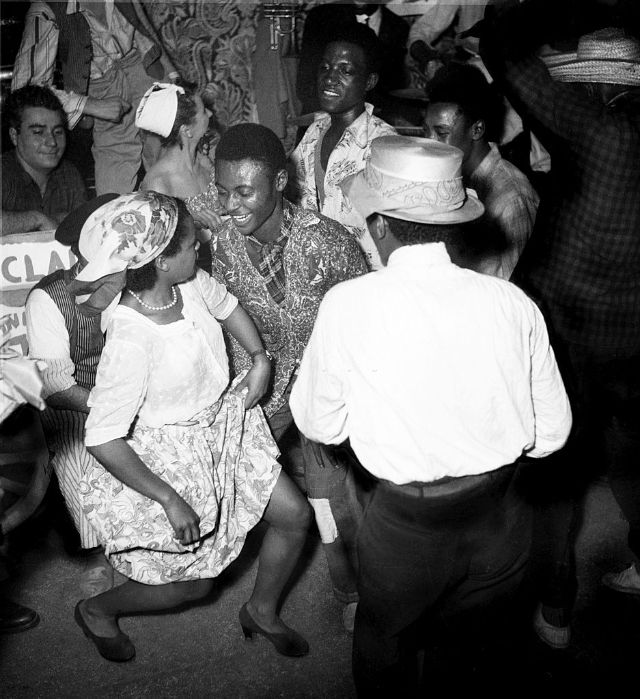
Club du Vieux Colombier in Saint-Germain-des-Pres, Paris, 1949.
The jazz lifestyle was one of vivacity and celebration, where the night came alive with music and dancing.
Jazz clubs, speakeasies, and underground bars served as sanctuaries for those seeking a good time and an escape from Prohibition restrictions.
The clinking of glasses, the tapping of feet, and the laughter that filled the air exuded an atmosphere of carefree revelry.
The allure of the jazz lifestyle extended beyond the music, encompassing an attitude of living life to the fullest, embracing modernity, and challenging societal norms.

Club du Vieux Colombier in Saint-Germain-des-Pres, Paris, 1949.
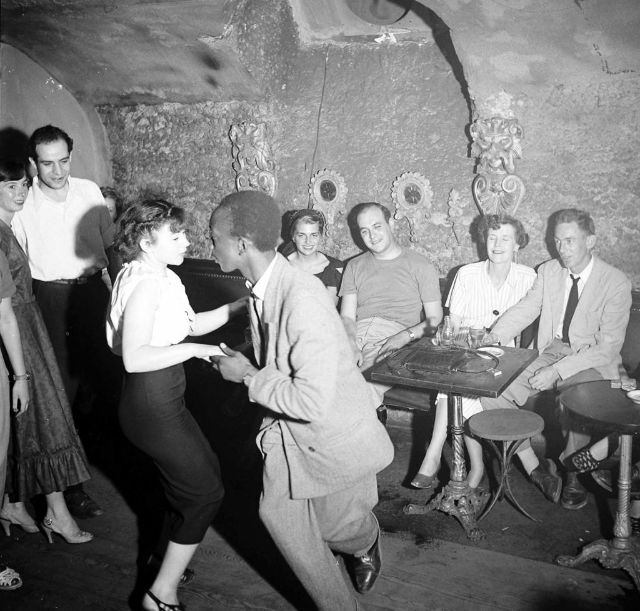
Paris, 1949. (Photo by Dmitri Kessel)
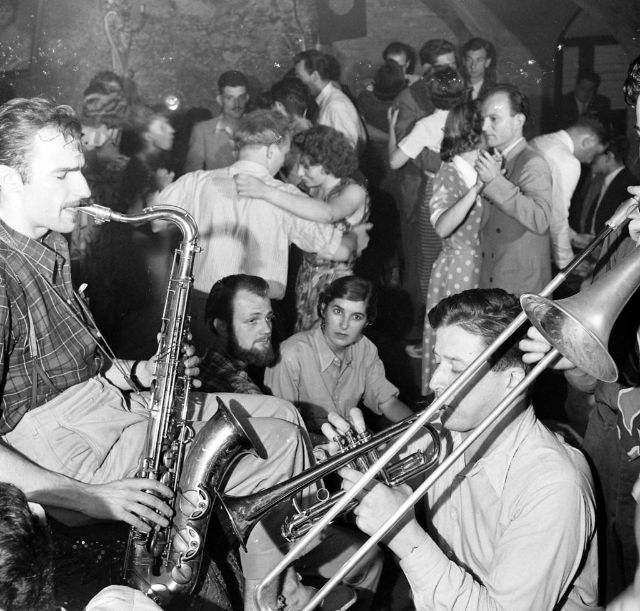
Paris, 1949. (Photo by Dmitri Kessel)
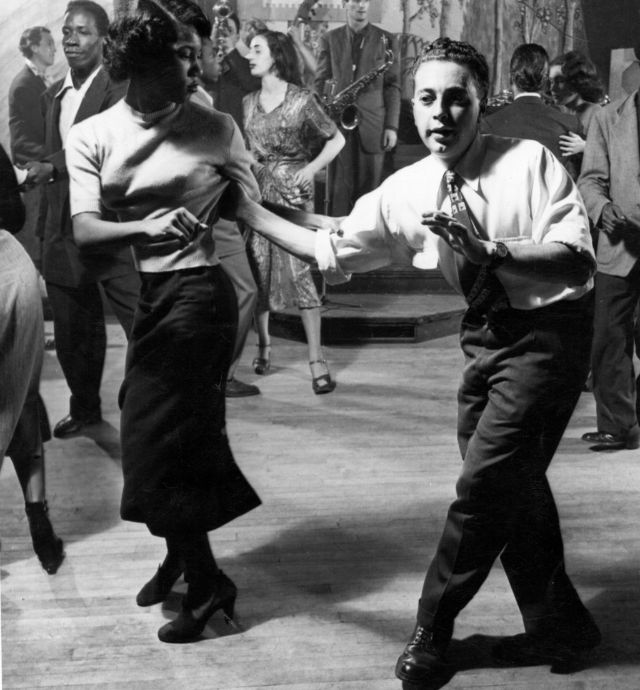
Bebop dancing at Club Eleven, 1949. (Photo by Topical Press)

Bebop dancing at Club Eleven, 1949. (Photo by Topical Press)
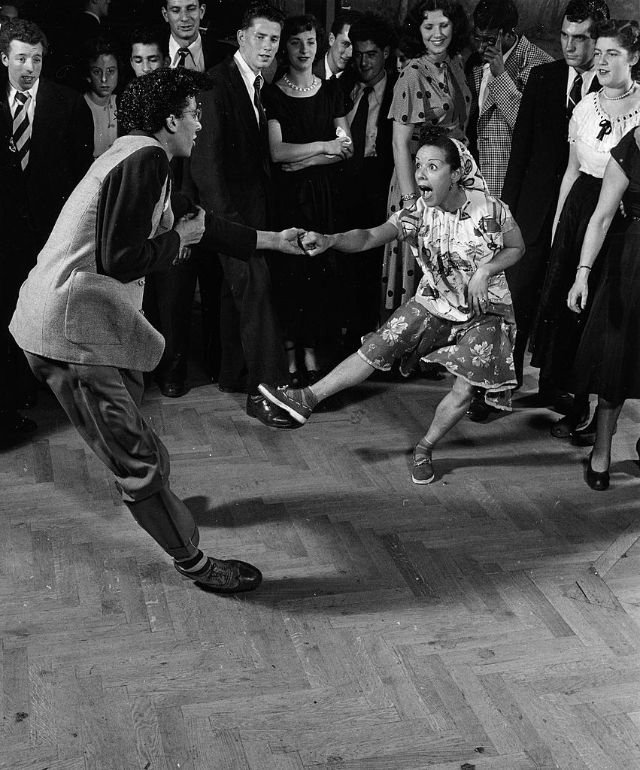
Bepop dancing at the Feldman Club, London, 1949. (Photo by Popperfoto)
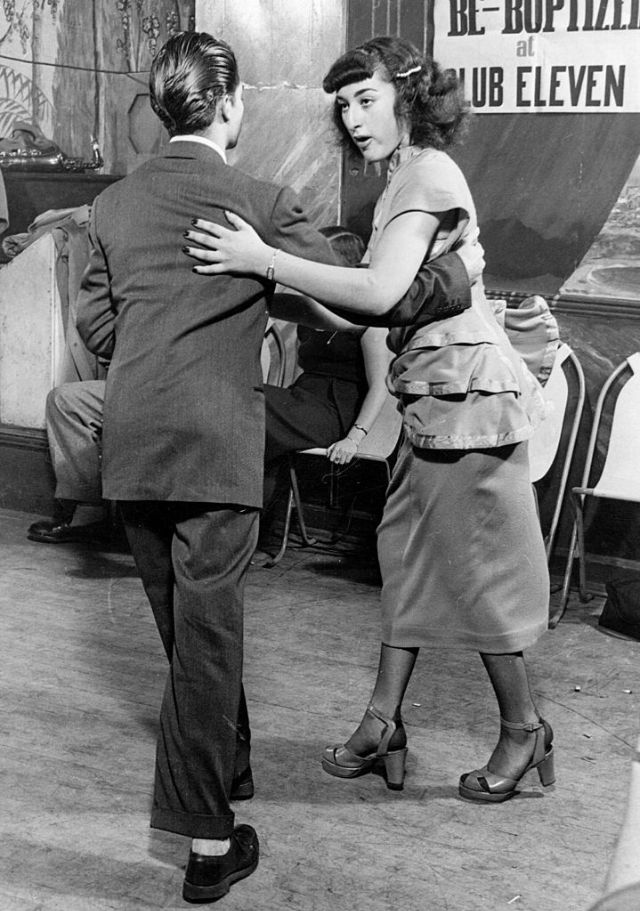
Bebop dancing at Club Eleven, 1949. (Photo by Topical Press)
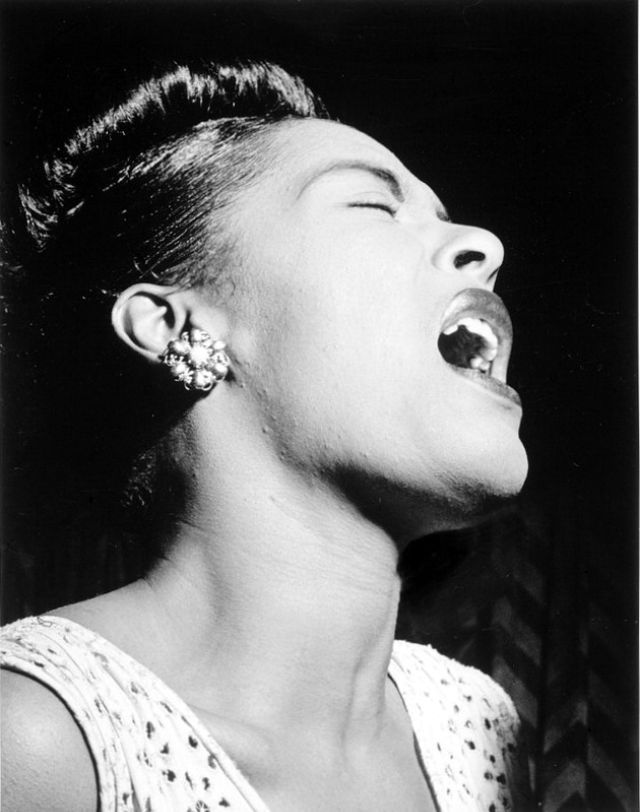
Billie Holiday, Downbeat, New York, Feb. 1947. (Photo by William P. Gottlieb)
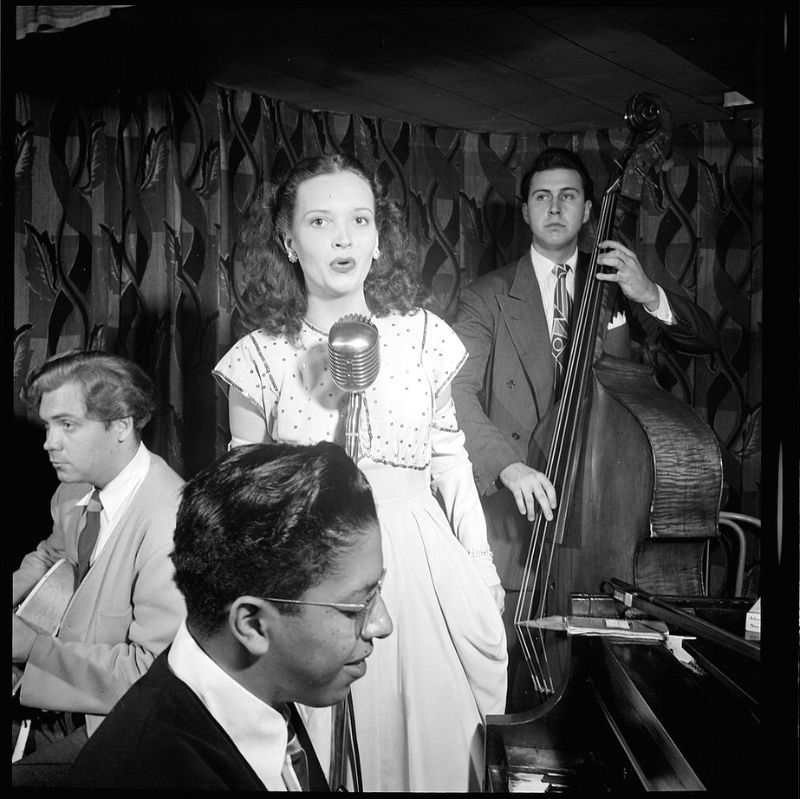
Deryk Sampson, Lynn Carver, Justin Arndt, and Clair Dorward, Famous Door, New York, Sept. 1947. (Photo by William P. Gottlieb)
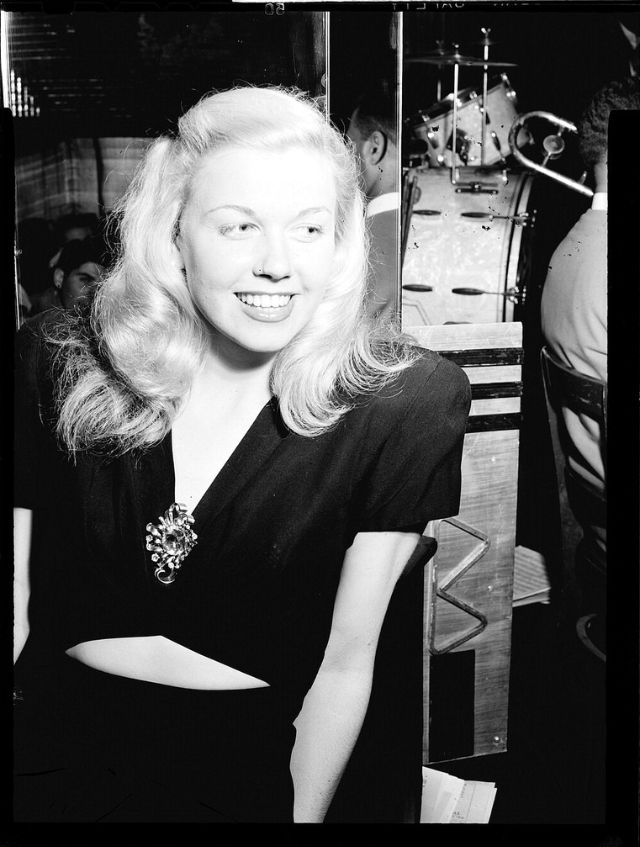
Doris Day, Aquarium, New York, July 1946. (Photo by William P. Gottlieb)
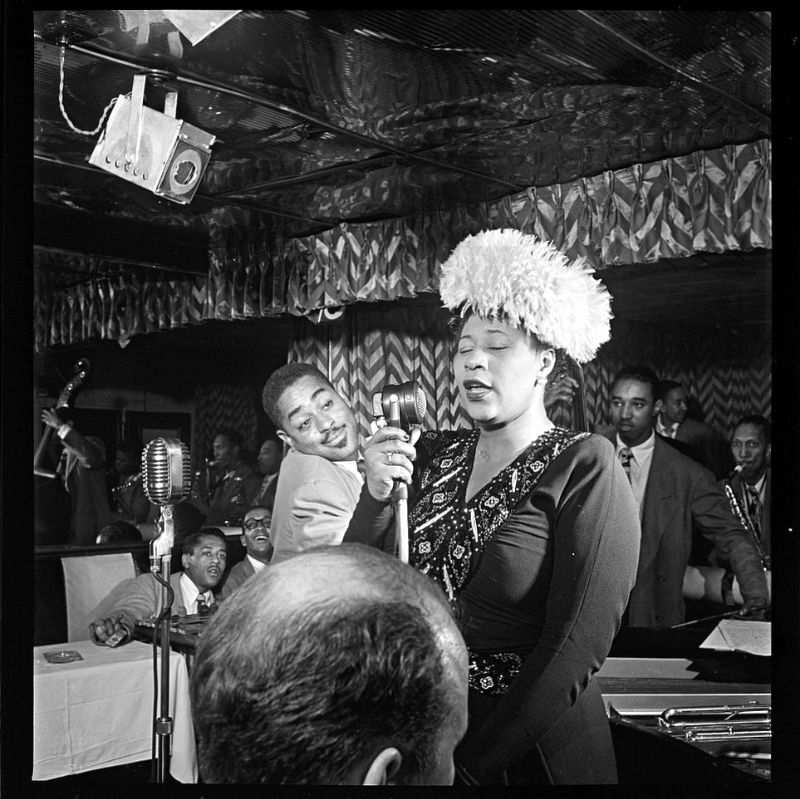
Ella Fitzgerald, Dizzy Gillespie, Ray Brown, Milt (Milton) Jackson, and Timmie Rosenkrantz, Downbeat, New York, Sept. 1947. (Photo by William P. Gottlieb)
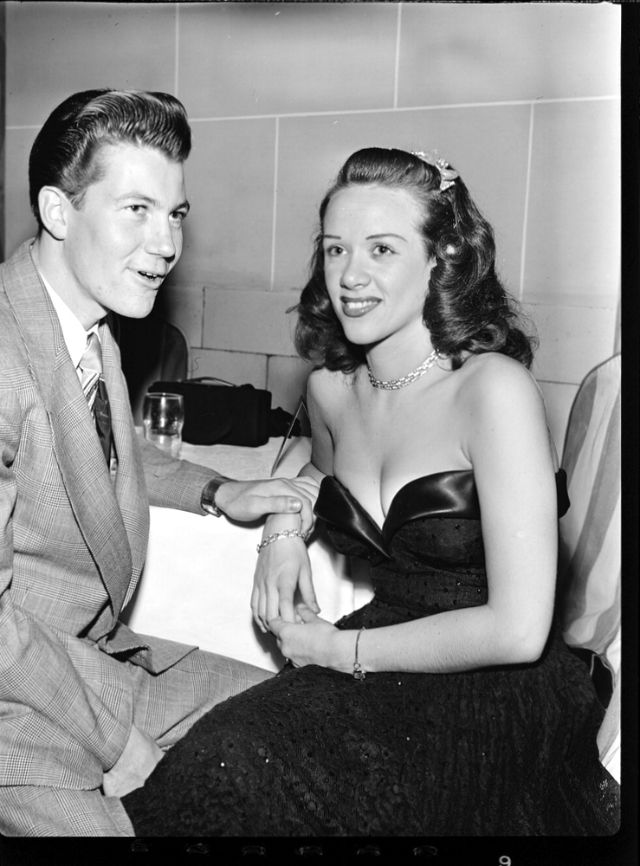
Gene Williams and Fran Warren, Hotel Pennsylvania, New York, Oct. 1947. (Photo by William P. Gottlieb)

Josephine Premice, Village Vanguard, New York, July 1947. (Photo by William P. Gottlieb)
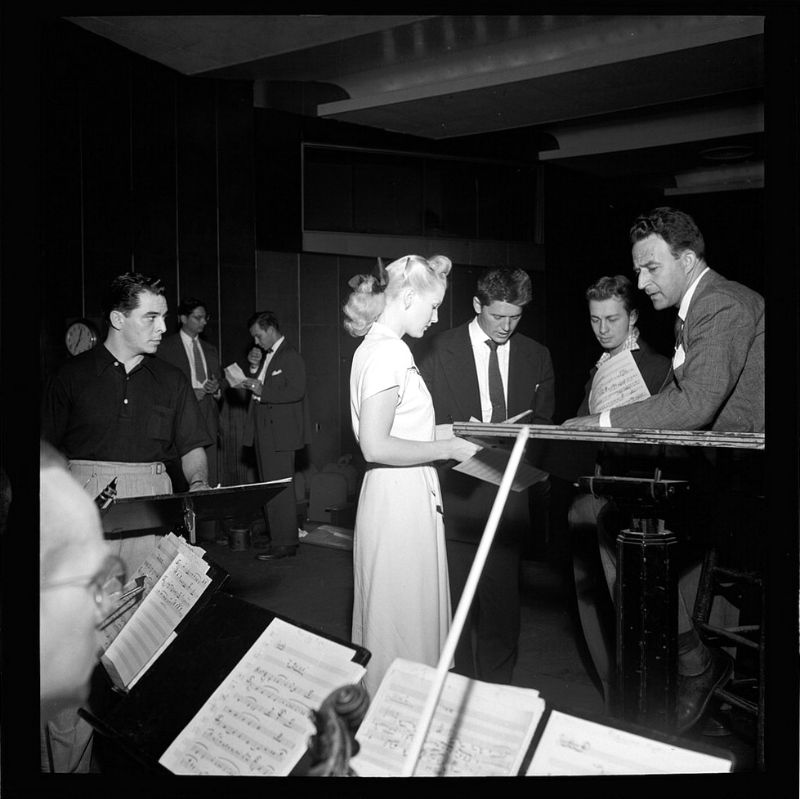
Marion Hutton, Gordon MacRae, Jerry Wald, Mel Tormé, and Jerry Jerome, Saturday Teentimers Show, New York, Aug. 1947. (Photo by William P. Gottlieb)

Mary Lou Williams, New York, 1946. (Photo by William P. Gottlieb)
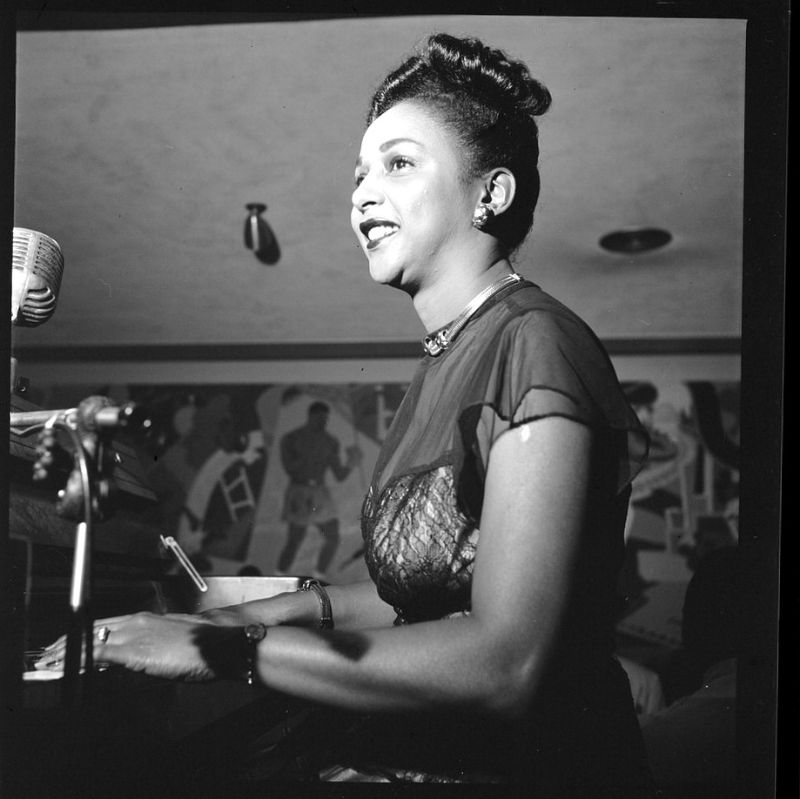
Norma Sheppard, between 1938 and 1948. (Photo by William P. Gottlieb)
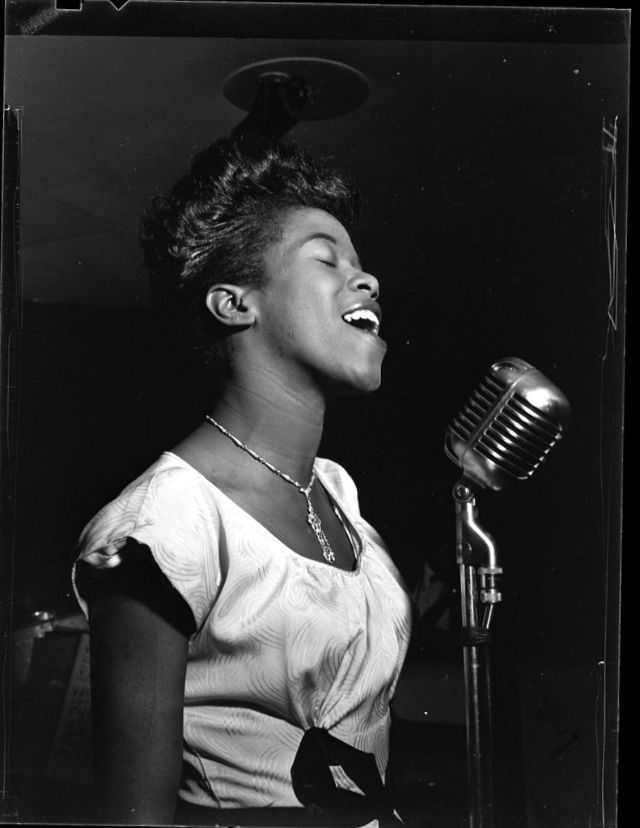
Sarah Vaughan, Café Society (Downtown), New York, Aug. 1946. (Photo by William P. Gottlieb)
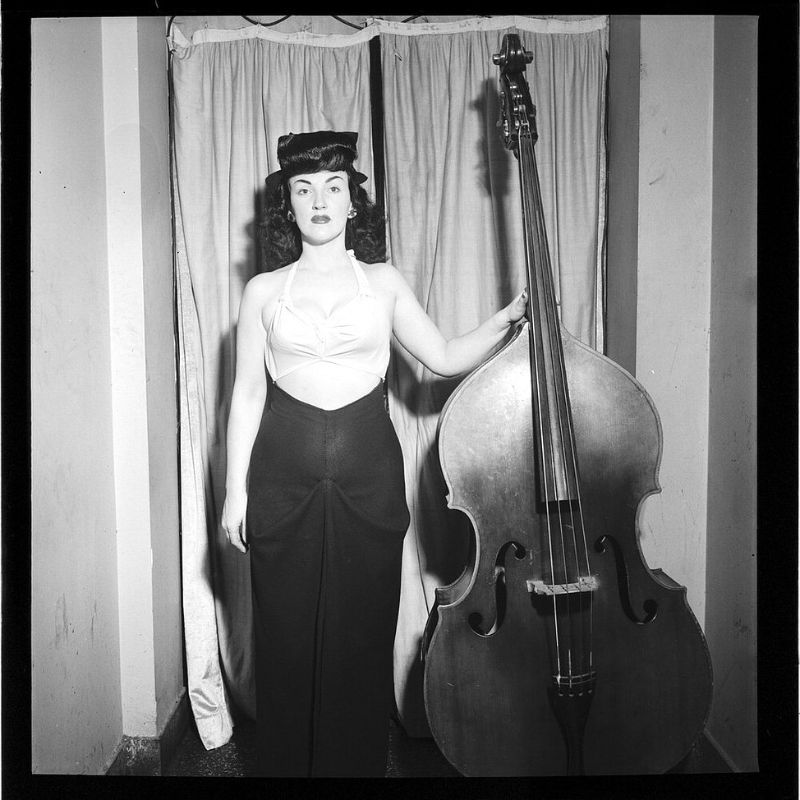
Vivien Garry, Dixon’s, New York, May 1947. (Photo by William P. Gottlieb)
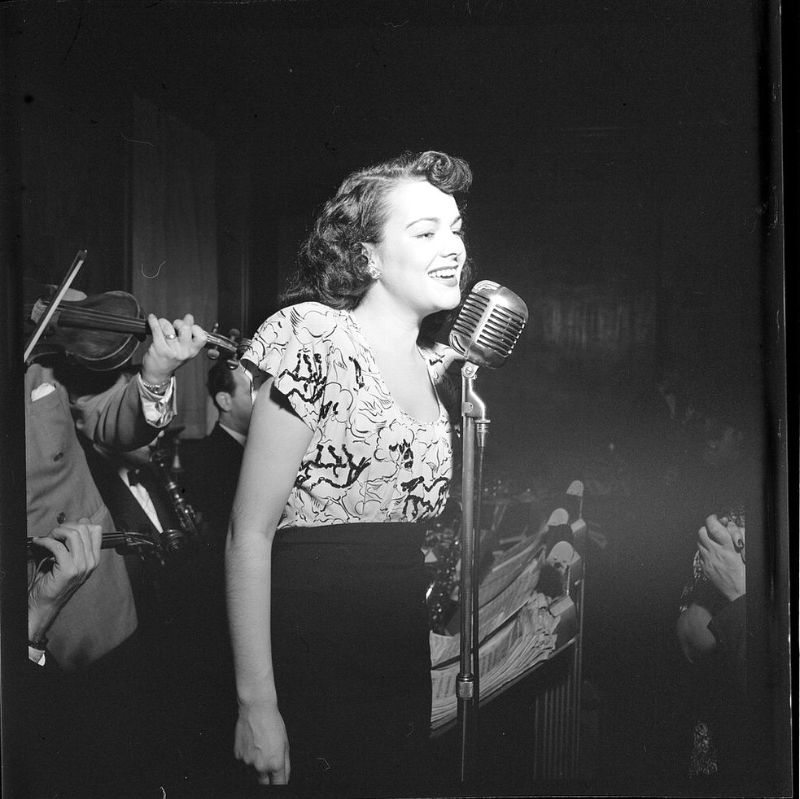
A vocalist with Justin Stone’s ensemble, between 1938 and 1948. (Photo by William P. Gottlieb)
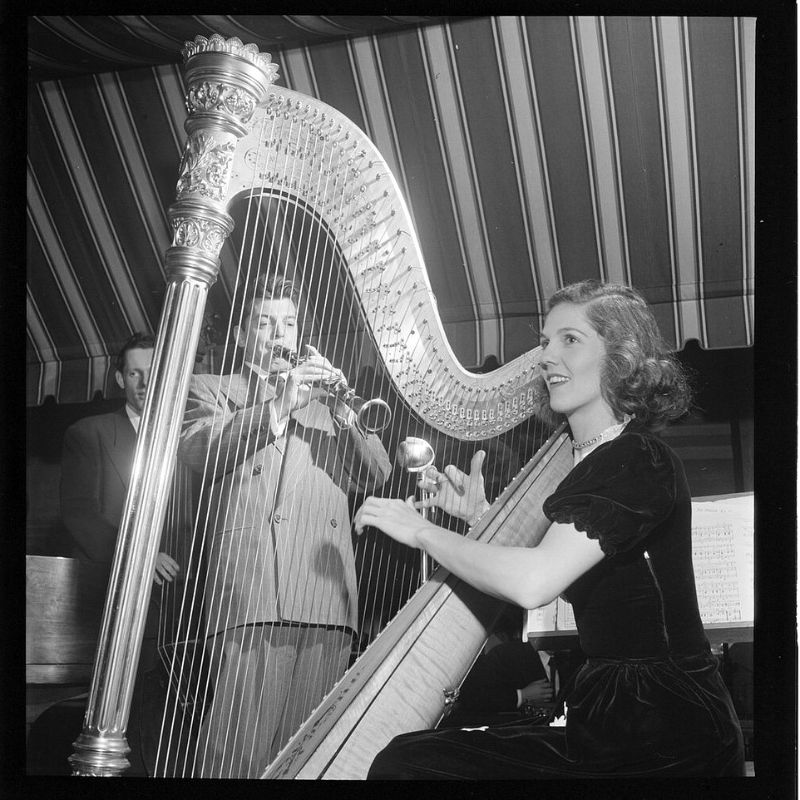
Adele Girard and Joe Marsala, Hickory House, New York, between 1946 and 1948. (Photo by William P. Gottlieb)

Bertha Chippie Hill, New York, between 1946 and 1948. (Photo by William P. Gottlieb)
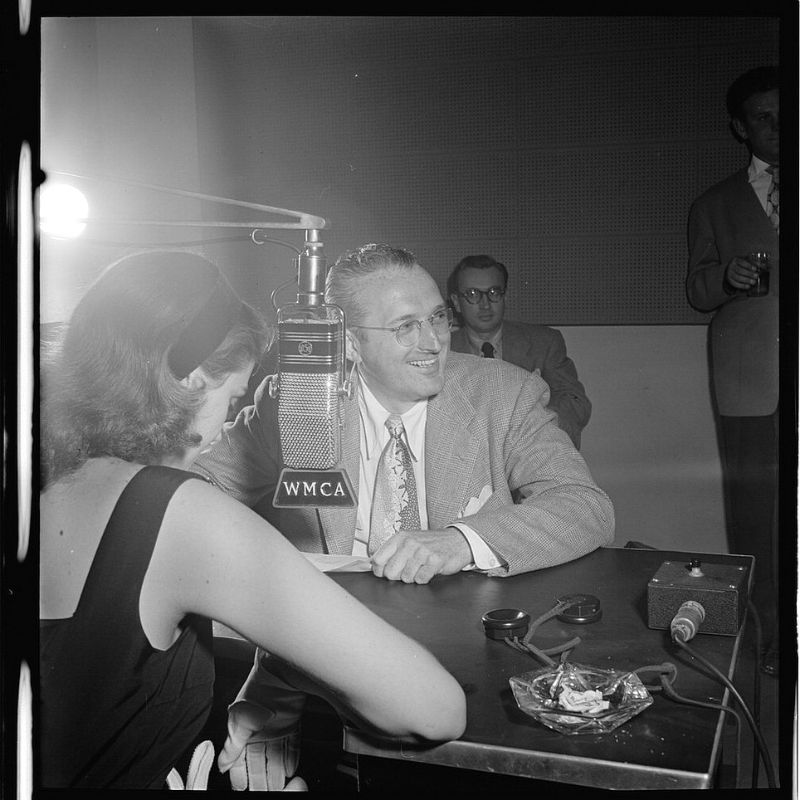
Beryl Davis and Tommy Dorsey, WMCA, New York, Oct. 1947. (Photo by William P. Gottlieb)


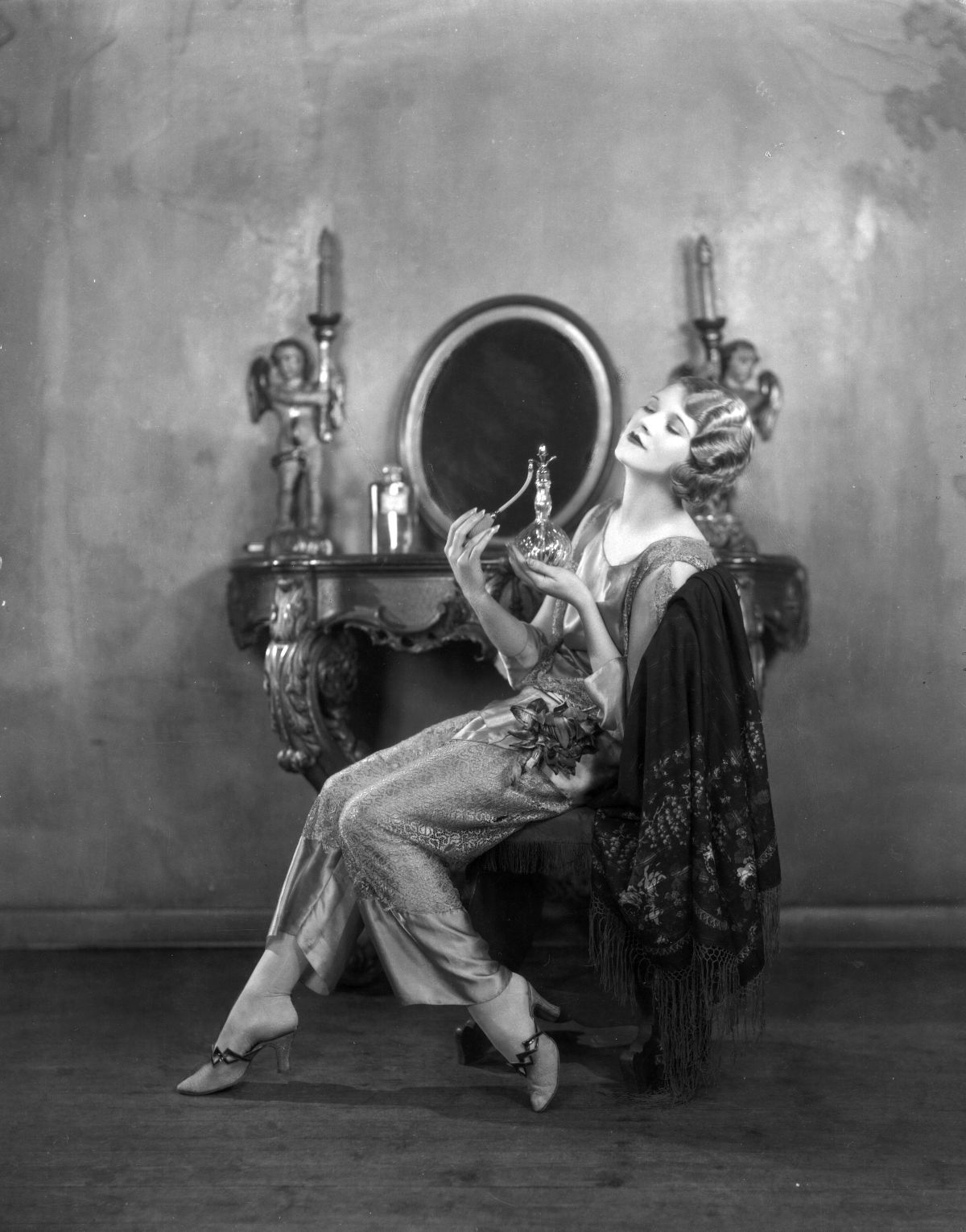
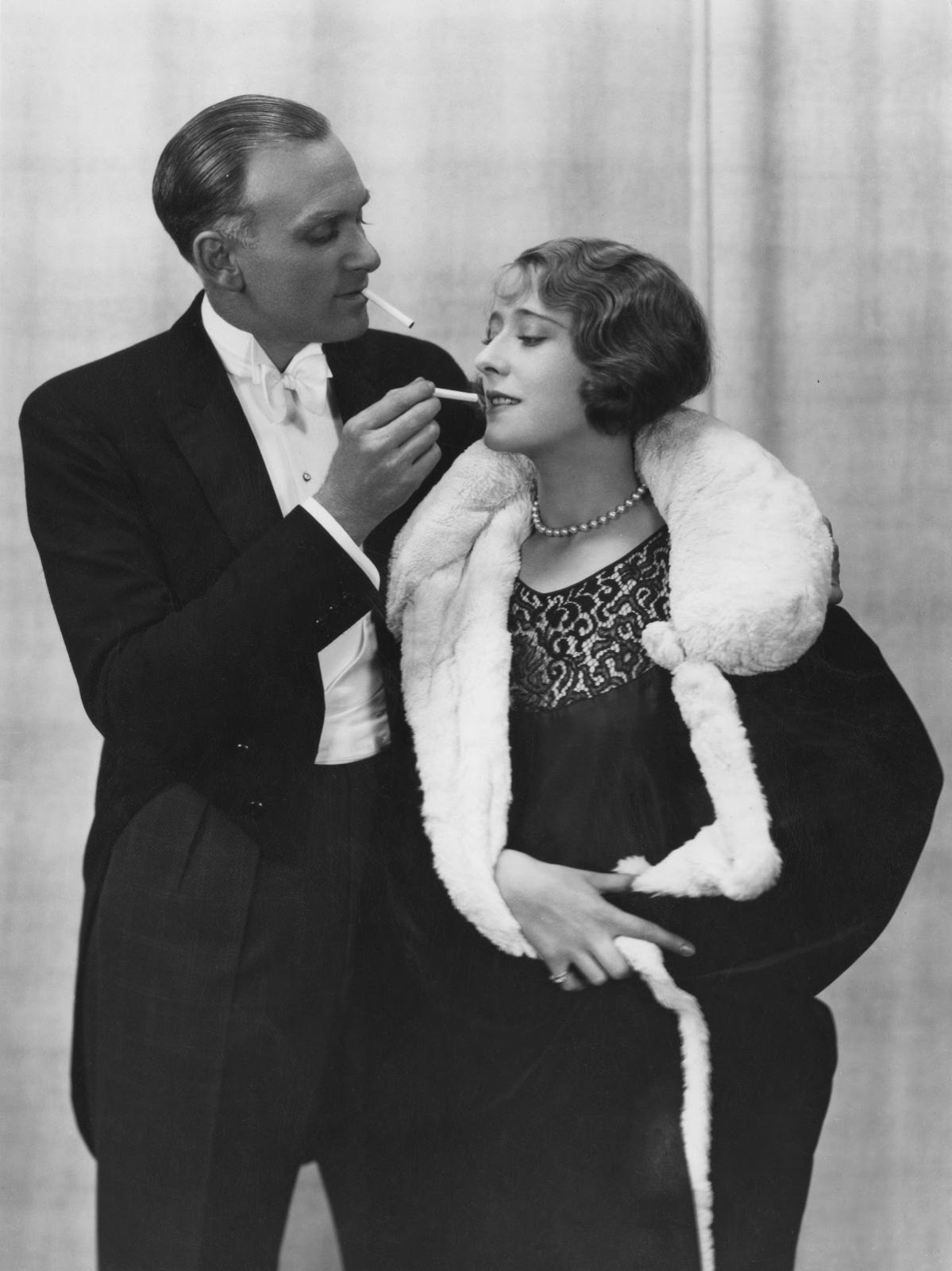

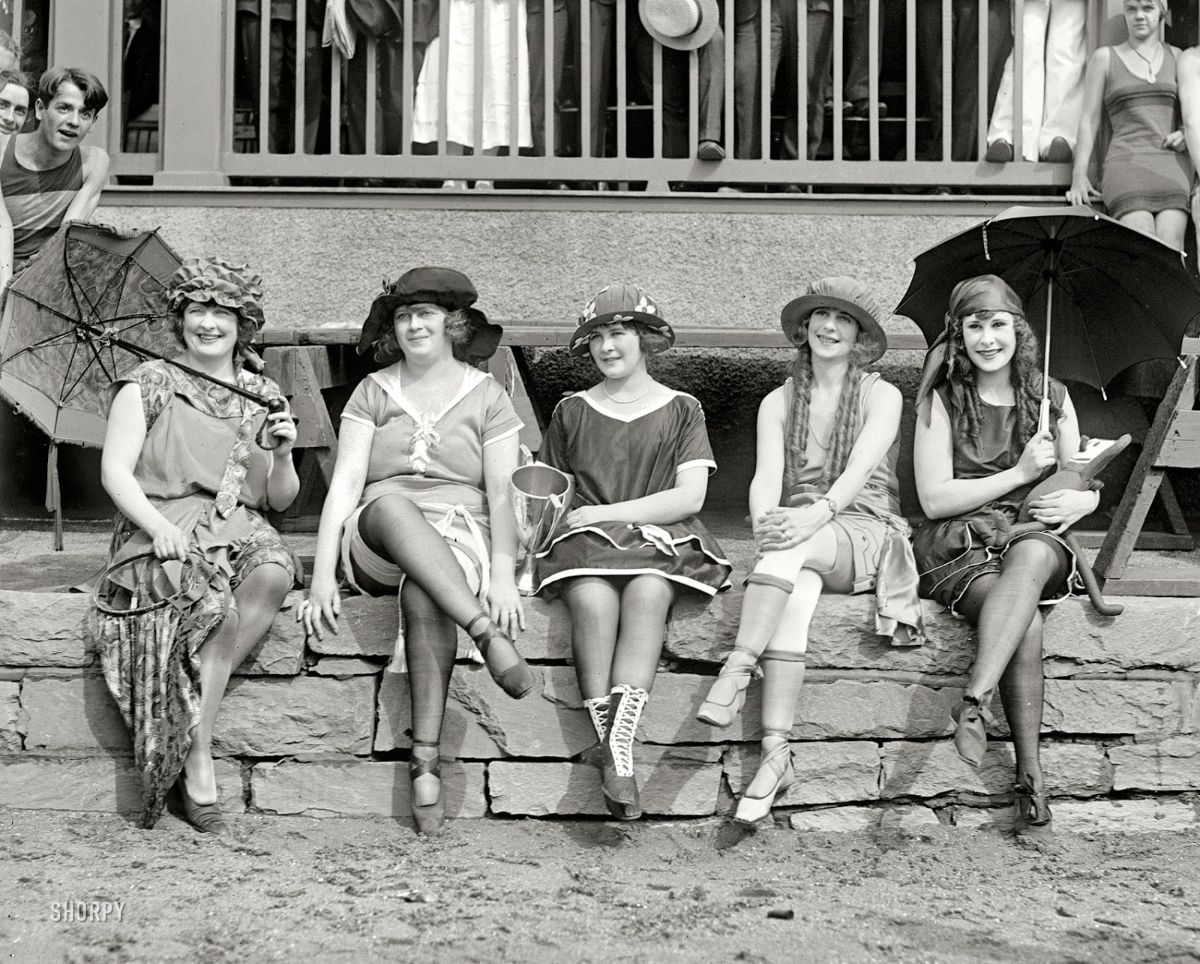
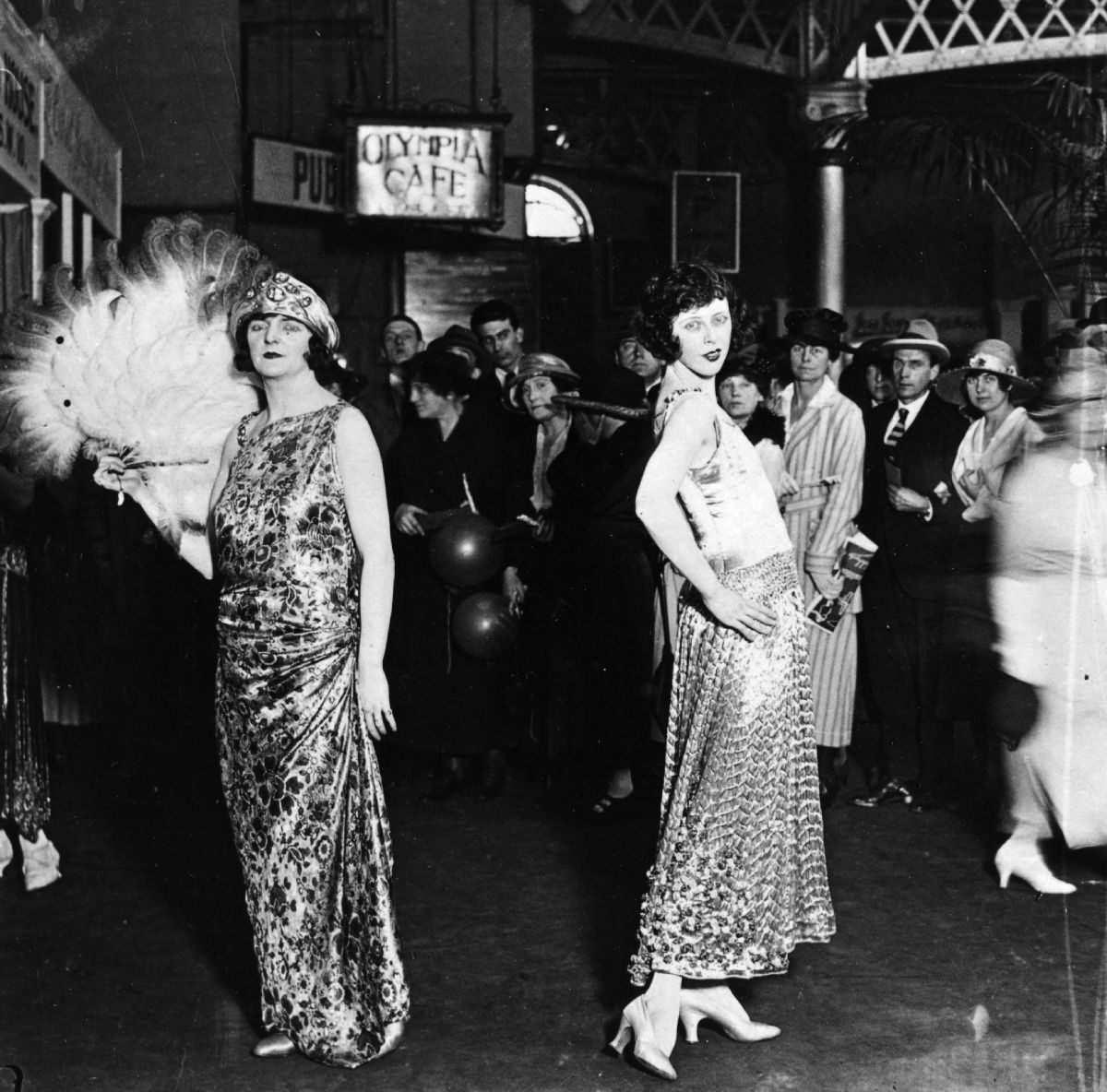
(Photo credit: Pinterest / Wikimedia Commons / Flickr).
Updated on: July 31, 2023



